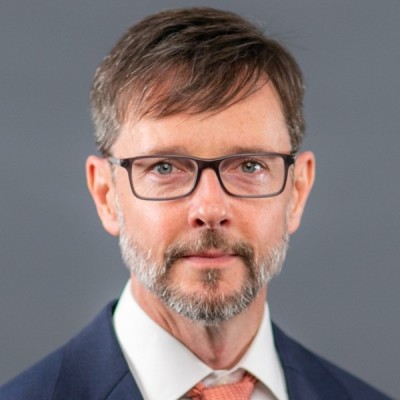
Gary W. Green
- Courses2
- Reviews2
- School: University of Florida
- Campus:
- Department: Communication
- Email address: Join to see
- Phone: Join to see
-
Location:
201 Criser Hall
Gainesville, FL - 32611 - Dates at University of Florida: November 2016 - May 2018
- Office Hours: Join to see
N/A
Would take again: No
For Credit: Yes
0
0
Mandatory
Poor
Professor Green's class wan not enjoyable because of the double-standard associated with this class. Several people got much better zip codes with better resources, yet everyone was supposed to produce the same kinds of stories. Also, not everyone writes the same way. We were graded on this criterion, though, instead of being graded on OUR writing skills.
Biography
University of Florida - Communication
Executive Director | Senior Lecturer of Communication
Gary
Green
I am a newsroom leader and journalism educator with over 25 years of experience who leans into the digital disruption, fosters innovation and trains the next generation of journalists.
As deputy news director of the Innovation News Center, I lead a team of industry professionals, faculty and students to report local and breaking news, long-term projects and enterprise stories from Florida and beyond.
As digital director of wuft.org, I am responsible for product ownership of our newsroom’s digital offerings on our Edward R. Murrow award-winning website, and integrating that content across our TV (PBS), radio (NPR), social media and emerging platforms.
As co-founder, editor and publisher of Fresh Take Florida news service, I collaborate with faculty and news professionals across the state to lead a select group of University of Florida journalism students to cover the Florida state legislature and disseminate those stories to clients including the Associated Press, CNN and majority of the state's print newspapers and public media stations.
While serving as trustee and vice chair of the board of the First Amendment Foundation, I led a series of student-produced investigative projects that exposed flaws in the enforcement mechanisms of Florida's Sunshine Law.
Through my work with the First Amendment Foundation and nonprofit newsrooms, I lead recruiting and fundraising efforts, while developing short and long-term strategies to allocate finite resources to drive our missions.
Specialties: Leadership • Innovation • Project Management • Mentorship • Digital and Multimedia Storytelling • Social Media • Sunshine Law • Ethics
Experience
Education
Ohio University
B.F.A.
Visual Communications
PhotojournalismUniversity of Florida
M.A.
Mass Communication and Journalism
Studied Mass Communications and Journalism Thesis—A case study of the Orlando Sentinel's coverage of the Casey Anthony and George Zimmerman trials. THE NEW NORM: HIGH PROFILE TRIAL COVERAGE THROUGH NEW MEDIA TECHNOLGIES CHANGES TRADITIONAL NEWS GATHERING AND DISSEMINATION PROCESSESUniversity of Florida
Managing at UF: The Supervisory Challenge
Leadership
Using the University of Florida’s Leadership/Management Competency Model, Managing at UF: The Supervisory Challenge is designed to provide University of Florida leaders with meaningful information about the knowledge, skills, and behaviors necessary for being an effective manager in our diverse university environment.University of Florida
Digital Director: Innovation News Center | Deputy News Director: WUFT
Deputy News Director and Digital Director of University of Florida's Innovation News Center, home to North Central Florida's NPR affiliate, WUFT-FM, and PBS affiliate, WUFT-TV. Lecturer for UF's new multi-disciplined professional masters program. I teach undergraduate and graduate courses in digital storytelling, video and multimedia storytelling, news center practicum, advanced editing and reporting and serve on the capstone project committee. I also lead the College's multimedia efforts for the Hearst College Journalism Awards.Poynter Institute
Sports Journalism Summitt
Publications
The New Norm: A case study of the Orlando Sentinel’s adaptation of new media technologies during high-profile trial coverage
Journalism Practice
This article examines how one Central Florida newspaper used emerging media technologies to communicate and engage better with a newly active audience during its coverage of two high-profile court trials. Through a series of in-depth interviews with participating journalists, the author demonstrates how the Orlando Sentinel disrupted traditional newsgathering and dissemination methods during reporting of the Casey Anthony and George Zimmerman trials, and in doing so, challenged long-standing gatekeeping media theories and exemplified emerging participatory journalism models. Findings show that audience demands for live and continuous information throughout the development of the Casey Anthony and George Zimmerman stories and resulting court proceedings were a driving force in changing outdated journalism paradigms that led to the adaptation of a new norm by the Orlando Sentinel newsroom and journalists. KEYWORDS: Casey Anthony, digital disruption, gatekeeping, George Zimmerman, Orlando Sentinel, participatory journalism, social media, Trayvon Martin
Possible Matching Profiles
The following profiles may or may not be the same professor:
- Gary Green
Northeastern Illinois University - Accounting
Possible Matching Profiles
The following profiles may or may not be the same professor:
- Gary W. Green (30% Match)
Lecturer
University Of California - University Of California - Gary W Green (30% Match)
Lecturer
University Of Florida - University Of Florida - Gary W Greener (60% Match)
Instructor
Texas State Technical College System - Texas State Technical College System
